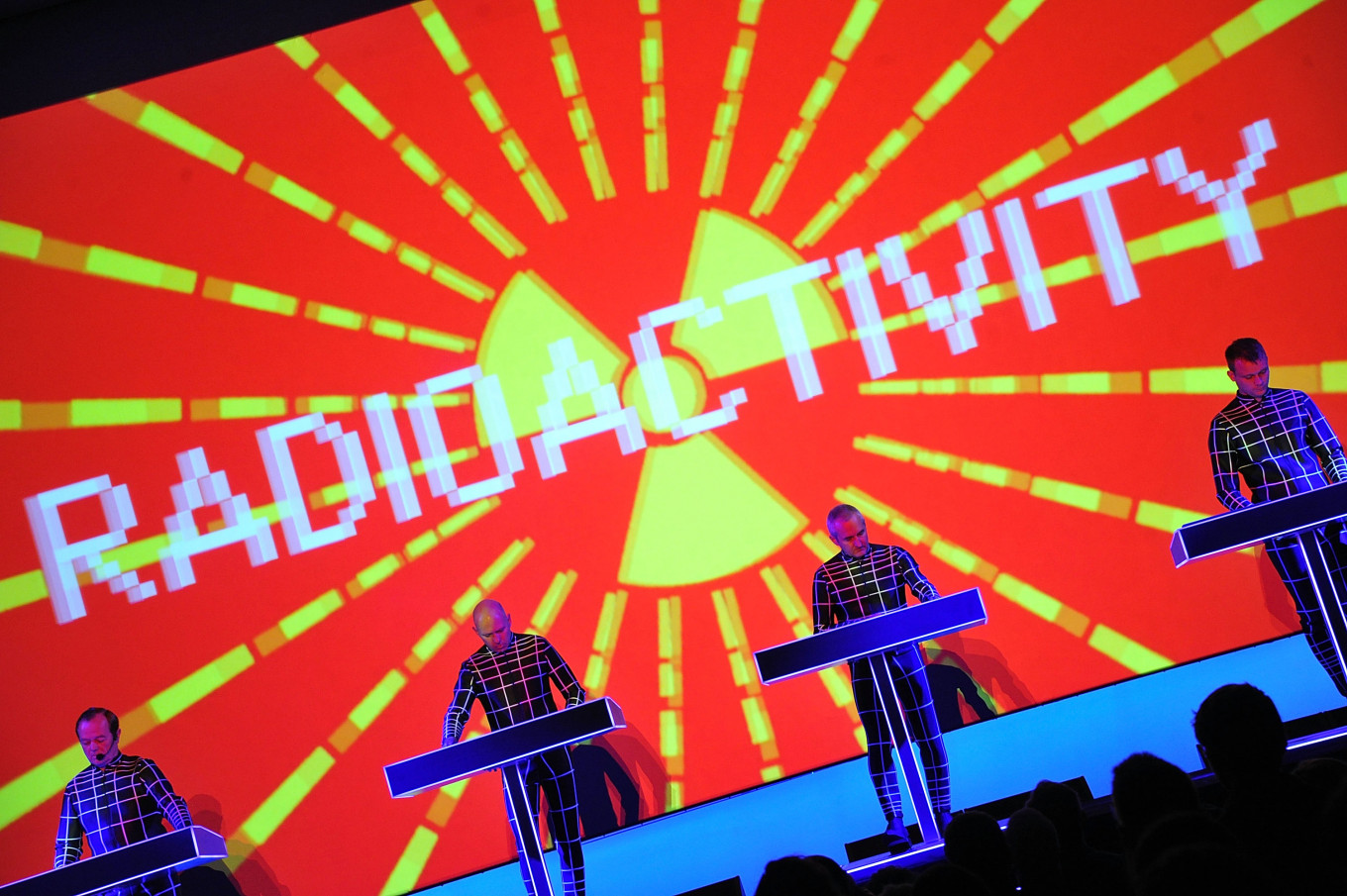Popular Reads
Top Results
Can't find what you're looking for?
View all search resultsPopular Reads
Top Results
Can't find what you're looking for?
View all search resultsFlorian Schneider, co-founder of Germany's iconic Kraftwerk, dead at 73
Change text size
Gift Premium Articles
to Anyone
K
raftwerk's Florian Schneider, co-founder of the pioneering electronic music group that re-wired the future of pop, has died, the group's management said Wednesday. He was 73 years old.
Schneider died following a short battle with cancer, according to a statement citing his fellow co-founder Ralf Huetter, obtained by AFP from Kraftwerk's publicist in Los Angeles.
Schneider and Huetter began their artistic collaboration in 1968 as part of the so-called "krautrock" movement -- a broad experimental genre blending psychedelic rock with electronic rhythms and early synthesizers, seen as a rebellion against the Anglo-Saxon pop brought in by British and American troops.
But Kraftwerk, launched in 1970, hatched a far more singular vision from their "Kling Klang" studio in the western German city of Duesseldorf.
Their influence on par with The Beatles, the duo crafted the blueprint for genres from new wave to synth-pop, hip hop to rock, industrial to techno.
The nearly 23-minute title track of their 1974 album "Autobahn" -- the German word for highway -- comprised the entire first side of the LP with a prototypical, hypnotizing sound of the future, punctuated with car horns, doors slamming and ignition.
The industrial clang, sparse arrangements and computerized beats of Kraftwerk -- which means "power station" in German -- brought international recognition to the group who famously said they wanted to make music more as machines than as men.
Schneider's tools included the electric flute, violin, electric guitar and synthesizer. He also sang with Huetter, who played keyboards.
Their haunting basslines, synthesizer pads and drum machines combined with robotic vocals captured the attention of a dizzying array of stars past and present, including David Bowie, Madonna, Daft Punk and Kanye West.
"My favorite group is a German band called Kraftwerk -- it plays noise music to 'increase productivity,'" Bowie told Playboy in 1976, when asked what will happen to music's future.
"Sound as texture, rather than sound as music. Producing noise records seems pretty logical to me," Bowie told the magazine.
The late legend named his largely instrumental track "V-2 Schneider" off the classic 1977 album "Heroes" after the Kraftwerk co-founder.
Florian Schneider, co-founder of highly influential electronic pop group Kraftwerk, has died at the age of 73. Here’s a clip of the group showing Tomorrow’s World their studio back in 1975. For more archive clips of electronic music, you can visit - https://t.co/Uz3A3Vx8dN pic.twitter.com/yaZ12qhbsq
— BBC Archive (@BBCArchive) May 6, 2020
Read also: Farewell, Godfather of Broken Hearts
Never-ending 'Autobahn'
Born April 7, 1947, Schneider was the son of Paul Schneider-Esleben a prominent architect whose designs included the Cologne airport.
The musician met Huetter when the pair were both students in Duesseldorf, where they began cultivating their pioneering concepts, tapping into the ubiquity of machines and the growing place of technology in daily life.
While "Autobahn" was perhaps their best-known album internationally, they also found global success with "Radioactivity" (1975), "Trans-Europe Express" (1977), "The Man Machine" (1978) and even the later "Tour de France Soundtracks" (2003).
The notoriously enigmatic group in 2018 also took the Grammy for Best Dance/Electronic Album for "3-D The Catalogue," a high-tech recreation of their back albums.
They won a 2014 lifetime achievement Grammy but the six-time Rock and Roll Hall of Fame nominees have yet to be chosen for induction into that pantheon of music royalty.
Schneider's "innovative music left a lasting legacy and his work will continue to exert influence across various genres for years to come," said the Recording Academy in a statement.
"Florian's creativity knew no bounds," the body behind the Grammys said, adding "our culture is richer" thanks to the German artist.
Schneider left the group at the end of 2008 and did not participate in future tours.
Before the coronavirus pandemic halted shows worldwide, the group in February had announced a North American tour of its immersive "3-D Concerts" -- a concept launched in 2013 that fuses three-dimensional visuals and performance art with Kraftwerk's music catalog.
Music world tributes poured out to Schneider upon news of his death, including from the "Father of Disco" Giorgio Moroder of Italy, another major electronic dance music mastermind, who called the Kraftwerk co-founder "one of my heroes."
"The mighty Florian Schneider has left this earth. 2020 is really just the worst thus far," tweeted rockers Garbage, as Russian DJ Nina Kravitz wrote "what would electronic music be without Kraftwerk?"
France's legendary Jean-Michel Jarre also hailed Schneider: "My dear Florian Your Autobahn will never end."











